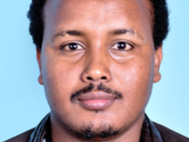
Breeding biology of Harwood’s Spurfowl
This study aims to understand the life history of the endemic Harwood’s Spurfowl (Pternistis harwoodi) including reproductive, behavioral, and spatio-temporal variability of traits for the first time in the Upper Blue Nile Basin, Ethiopia. We used field observations and camera traps to collect data from August to December 2020. We observed a non-lekking polygyny mating system, with females selecting the nesting sites. Most nests were designed to thwart predators through background matching, nest orientation and positioning, and reducing depositional odor trails. We found that the peak egg-laying period occurred in the first 2 wks of October. There were significant differences of clutch-size variation spatiotemporally, as well as variation of the geometrical parameters of eggs spatially, excluding for shape index. The average hatching success was 4.12 chicks/nest (± 0.91 SD). The daily nest survival rates (DSR) were estimated at 98.82% ± 0.003 (95% CI: 98.31%–99.32%), and the total survival probability of the nests was 70.48% ± 0.01 (95% CI: 60.66%–81.82%). We document a uniparental care strategy, with eggs being exclusively incubated by females and chicks being predominantly attended by their mothers, although males may support rearing the chicks during the post-hatching period.






